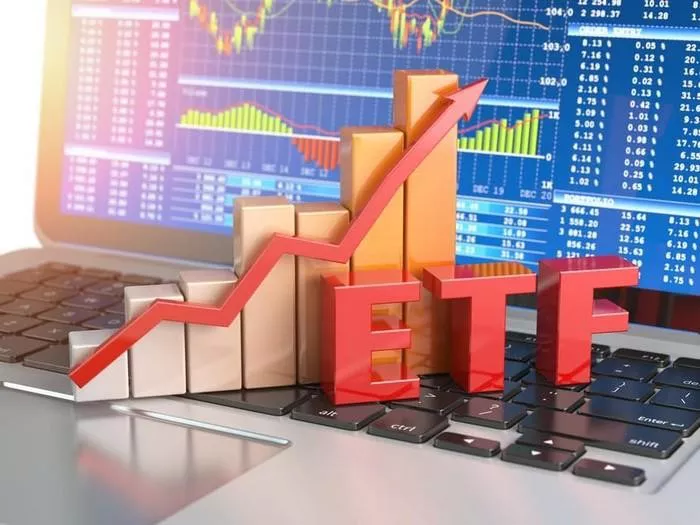In recent years, blockchain technology has emerged as a disruptive force with transformative potential across various industries. As investors seek exposure to this innovative sector, blockchain exchange-traded funds (ETFs) offer a convenient and diversified investment option. In this article, we delve into the world of blockchain ETFs, exploring their definition, advantages, components, performance, risks, top options, investment strategies, regulatory landscape, tax considerations, and resources for further learning.
Definition of Blockchain ETFs
Blockchain ETFs are exchange-traded funds that provide investors with exposure to companies involved in blockchain technology. Blockchain, the underlying technology behind cryptocurrencies like Bitcoin and Ethereum, is a decentralized digital ledger that records transactions across a network of computers. By utilizing cryptographic techniques, blockchain ensures transparency, security, and immutability of data.
Advantages of Blockchain ETFs
Investing in blockchain ETFs offers several advantages for investors:
1. Diversification: Blockchain ETFs typically hold a diversified portfolio of companies operating in the blockchain ecosystem, reducing the risk associated with investing in individual stocks.
2. Exposure to a High-Growth Sector: The adoption of blockchain technology is accelerating across industries such as finance, supply chain management, healthcare, and more. Investing in blockchain ETFs provides exposure to this high-growth sector poised for long-term expansion.
3. Potential for Long-Term Growth: As blockchain technology continues to evolve and disrupt traditional business models, companies at the forefront of innovation stand to benefit. Blockchain ETFs offer investors the opportunity to capitalize on the potential long-term growth of the sector.
Components of Blockchain ETFs
Blockchain ETFs typically include companies engaged in various aspects of blockchain technology, including:
1. Blockchain Technology Providers: Companies developing and implementing blockchain solutions for enterprises and industries.
2. Cryptocurrency Miners: Entities involved in the process of validating and recording transactions on blockchain networks, often rewarded with newly created digital assets.
3. Fintech Companies Utilizing Blockchain: Financial technology firms leveraging blockchain technology to improve efficiency, security, and transparency in areas such as payments, remittances, and smart contracts.
Performance and Volatility
Historically, blockchain ETFs have exhibited significant volatility, reflecting the nascent and rapidly evolving nature of the blockchain sector. While periods of explosive growth have been observed, investors should be prepared for heightened volatility and potential short-term fluctuations. For example, the Amplify Transformational Data Sharing ETF (BLOK) has experienced notable volatility, with returns varying based on market sentiment and regulatory developments.
Risks and Challenges
Despite the promising potential of blockchain technology, investing in blockchain ETFs carries inherent risks:
1. Regulatory Uncertainty: The regulatory landscape surrounding blockchain technology and cryptocurrencies remains uncertain, with governments worldwide grappling with how to regulate this emerging asset class.
2. Technological Risks: Blockchain technology is still evolving, and there are inherent risks associated with software bugs, security vulnerabilities, and scalability issues.
3. Market Volatility: The blockchain sector is highly volatile, influenced by factors such as market sentiment, technological advancements, regulatory developments, and macroeconomic trends.
While blockchain ETFs offer the potential for attractive returns, investors should carefully consider these risks and conduct thorough due diligence before investing.
Top Blockchain ETFs
Some of the top blockchain ETFs available in the market include:
1. Amplify Transformational Data Sharing ETF (BLOK): With assets under management (AUM) of over $1 billion and an expense ratio of 0.70%, BLOK provides exposure to companies actively involved in blockchain technology.
2. Reality Shares Nasdaq NexGen Economy ETF (BLCN): BLCN tracks the Reality Shares Nasdaq Blockchain Economy Index and includes companies at the forefront of blockchain innovation.
3. Invesco Elwood Blockchain ETF (BCHN): BCHN invests in companies involved in blockchain technology and has attracted significant investor interest.
Investors should consider factors such as expense ratios, AUM, and key holdings when evaluating blockchain ETFs for their investment portfolios.
Investment Strategies
When considering blockchain ETFs, investors can adopt different investment strategies tailored to their risk tolerance and investment objectives:
1. Long-Term Buy-and-Hold: Investors with a long-term investment horizon may choose to buy and hold blockchain ETFs, capitalizing on the potential growth of the sector over time.
2. Tactical Trading Approaches: Active traders may employ tactical trading strategies to capitalize on short-term price movements and market trends in blockchain ETFs.
Regardless of the chosen strategy, investors should stay informed about developments in the blockchain sector and adjust their investment approach accordingly.
Regulatory Landscape
The regulatory environment surrounding blockchain technology is evolving rapidly, with policymakers grappling with issues such as consumer protection, financial stability, and anti-money laundering measures. Recent regulatory developments, such as the introduction of digital asset regulations and central bank digital currencies (CBDCs), may have implications for blockchain ETFs and the broader cryptocurrency market.
Tax Considerations
Investors should be mindful of the tax implications associated with investing in blockchain ETFs. Capital gains taxes may apply to profits realized from the sale of ETF shares, depending on the holding period. Additionally, investors may explore tax-efficient investment strategies, such as tax-loss harvesting, to minimize their tax liabilities.
Resources for Further Learning
For investors seeking to learn more about blockchain technology and investing in blockchain ETFs, there are several reputable resources available:
1. Websites: Explore websites such as CoinDesk, CoinTelegraph, and Investopedia for news, analysis, and educational content on blockchain and cryptocurrency markets.
2. Books: Delve into books such as “Blockchain Basics: A Non-Technical Introduction in 25 Steps” by Daniel Drescher and “The Bitcoin Standard: The Decentralized Alternative to Central Banking” by Saifedean Ammous for in-depth insights into blockchain technology and its implications.
3. Podcasts: Listen to podcasts like “Unchained” hosted by Laura Shin and “The Pomp Podcast” hosted by Anthony Pompliano for interviews with industry experts and thought leaders in the blockchain space.
Conclusion
In conclusion, blockchain ETFs offer investors a convenient and diversified avenue to gain exposure to the transformative potential of blockchain technology. While presenting opportunities for diversification and long-term growth, investors should remain vigilant of the inherent risks and conduct thorough research before investing in blockchain ETFs. By staying informed and adopting sound investment strategies, investors can navigate the dynamic landscape of blockchain investing effectively.


